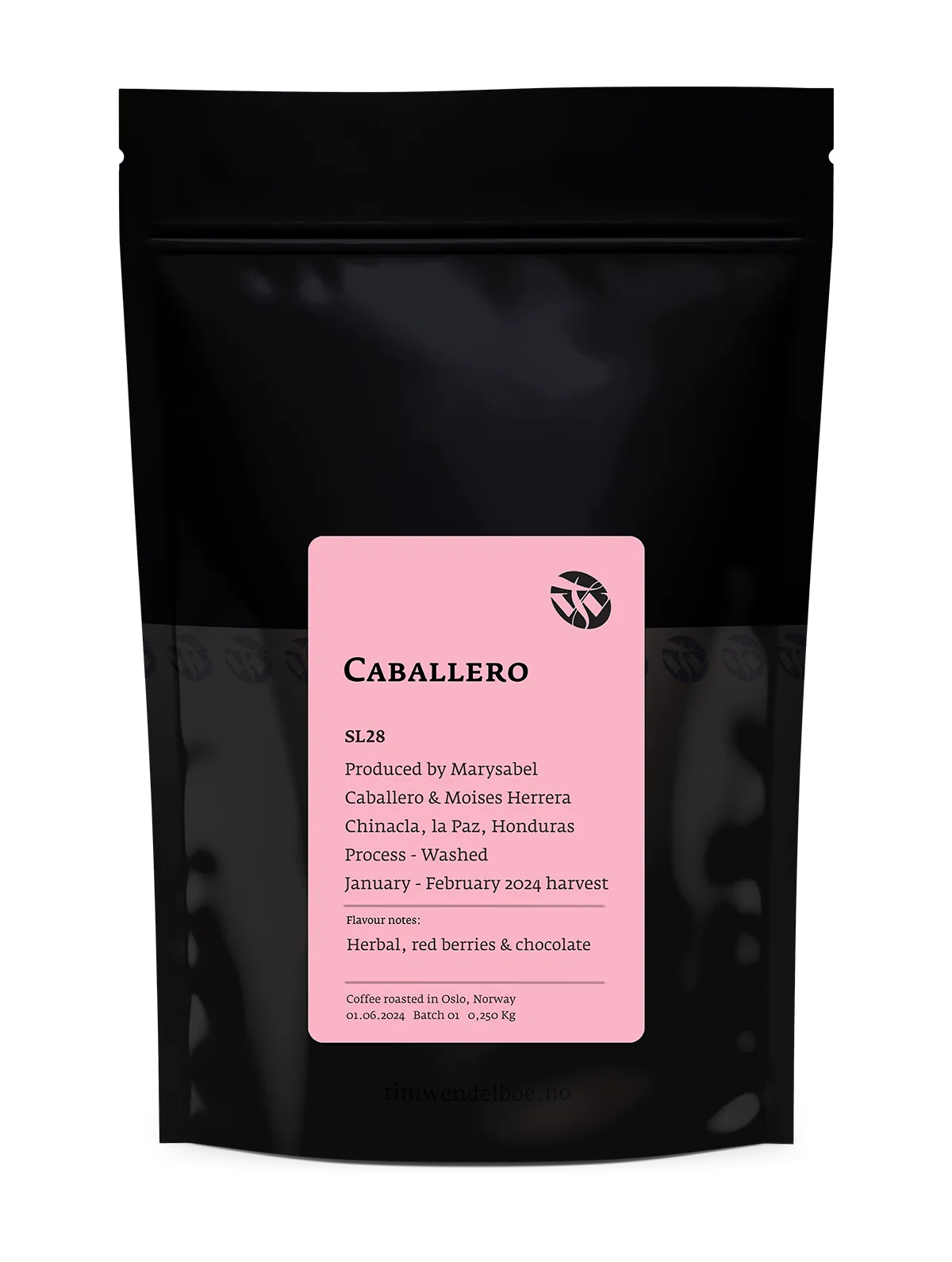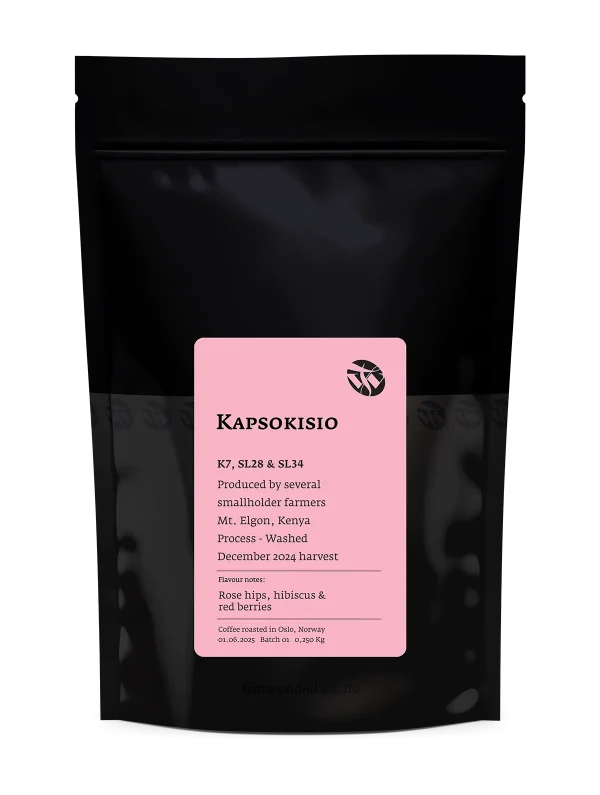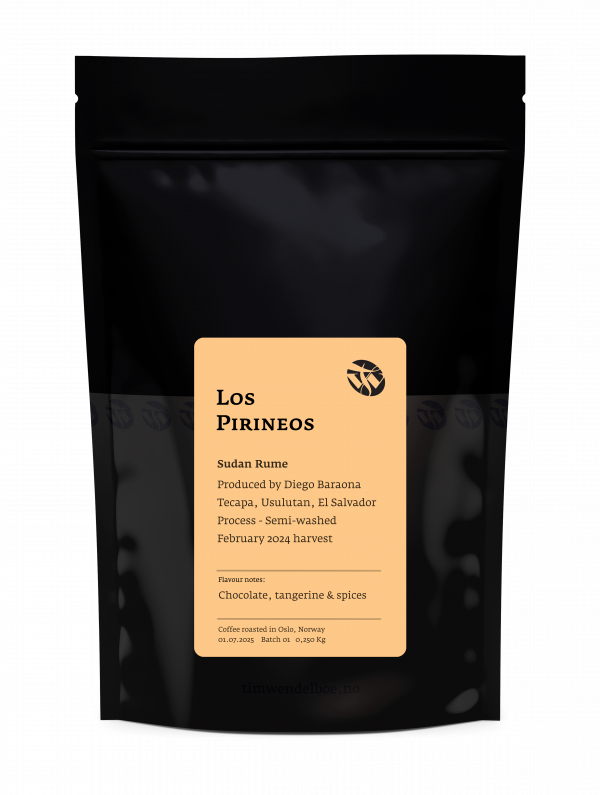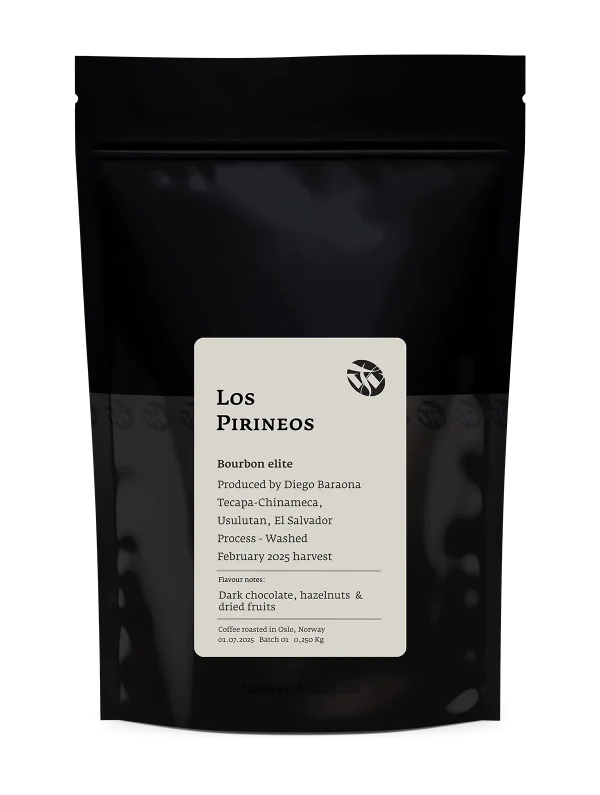| Cultivar | SL28 |
|---|---|
| Flavour Notes | Chocolate, red berries & herbal |
| Producer | Marysabel Caballero & Moises Herrera |
| Country | Honduras |
| Region | Chinacla, La Paz |
| Process | Washed |
| Harvest | January – February 2024 |
| Roast Profile | Light Roast |
| Contents | Whole Coffee Beans |
| Bag Size | 250g |
Caballero SL28
kr205.00
Expect a sweet and smooth coffee with notes of milk chocolate, red fruits and herbs from this Kenyan cultivar grown in Honduras.
Out of stock
Additional information
Tim's Notes
Most of you know that the SL28 cultivar is commonly grown in Kenya and a big reason why Kenyan coffees are so fruity and intense. Still, we have found that when planted in other countries, the profile can change quite a bit. Like the SL28 from Finca Tamanna in Colombia, the SL28 from Marysabel and Moises has a more subtle fruity flavour profile. I can still taste flavours of red berries, and delicate floral notes but they are not as intense as in the SL28 coffee from Jobneel and his farm Nacimiento further north in Honduras or the coffees we buy in Kenya. This year the Caballero’s SL28 coffee has a juicy mouthfeel with herbal and red berry notes with a chocolaty finish.
Cultivar
SL28 is one of the most popular cultivars grown in Kenya because of its high yields and superior quality in the cup. It is no secret that I love this fruity cultivar that at its best taste like black currant juice, rhubarb or rose hip tea. SL28 was a selection made by the Scott Agricultural Laboratories in the 1930’s and along with the SL34 cultivar it is the most commonly grown cultivar in Kenya and an important reason why everyone thinks about fruity coffees when they speak of Kenyan coffees.
Process
Picking and sorting
- Ripe cherries are hand picked by local pickers. The pickers are paid extra to sort ripe cherries from the unripe while they are picking. Sorting is done by simply putting the cherries in separate bags.
- The coffee cherries are de-pulped in the afternoon and the mucilage is partially removed from the parchment coffee with the use of a mechanical mucilage remover. Then the parchment coffee is fermented over night before the remaining mucilage is washed off with clean water in a washing channel which helps sorting floaters and undeveloped beans from the denser and more developed coffee. After washing the excess water is removed from the parchment coffee with the help of a centrifuge. Then the coffee is ready for drying.
- The coffees we buy from Marysabel and Moises are all dried slowly on raised beds covered with shade nets. These beds are set up by their house in Marcala where the climate is drier than at the wet mill which is located higher up in the mountains. During drying the coffees are raked throughout the day to ensure even drying. At night it gets covered to prevent condensation and the risk of the coffee gaining moisture in the drying process. Once the coffees are dried, they are stored in air tight grain pro bags before the they get milled and packed in vacuum packs and shipped to Norway.
Shipping
For our Norwegian customers, we offer three shipping options:
- Pakke i Postkassen - With Pakke i Postkassen, tracking is provided, and delivery is estimated within 2-3 business days.
- Pakke til hentested - The parcel can be collected from a Post in Store, Post Office, parcel locker, or parcel box. This option includes tracking, with delivery expected within 1-5 business days.
- Norwegian Post, No Tracking (Brevpost) - This option does not offer tracking. Delivery is estimated within 2-5 business days.
How To Brew
Filter
- We strongly recommend using the correct measurements and brewing techniques when you brew our coffees. Use a digital scale both to measure water and coffee in order to get consistent results, and we recommend using between 60 to 70 grams of coffee per litre (1000g) of water, depending on the brewing method, water quality and coffee used.
- We strongly recommend using VST filter baskets. Both the 18g, 20g and the 22g basket is great for our coffee. The VST filters makes it a lot easier to extract the espresso properly which gives a lot more sweetness in the cup. They are also more or less identical to each other which makes it easy to be more consistent when brewing on several groups at the same time. You can buy the filters on our webshop, just make sure they fit your machine (ours fits all La Marzocco machines and machines with 58mm filter baskets). With the VST 18g filter basket, we recommend the following brewing parameters: 18-19g freshly-ground coffee, 25-35s brewing time, 35-38g of final brew liquid in the cup, 93°C-94°C brew water temperature.
The Caballeros
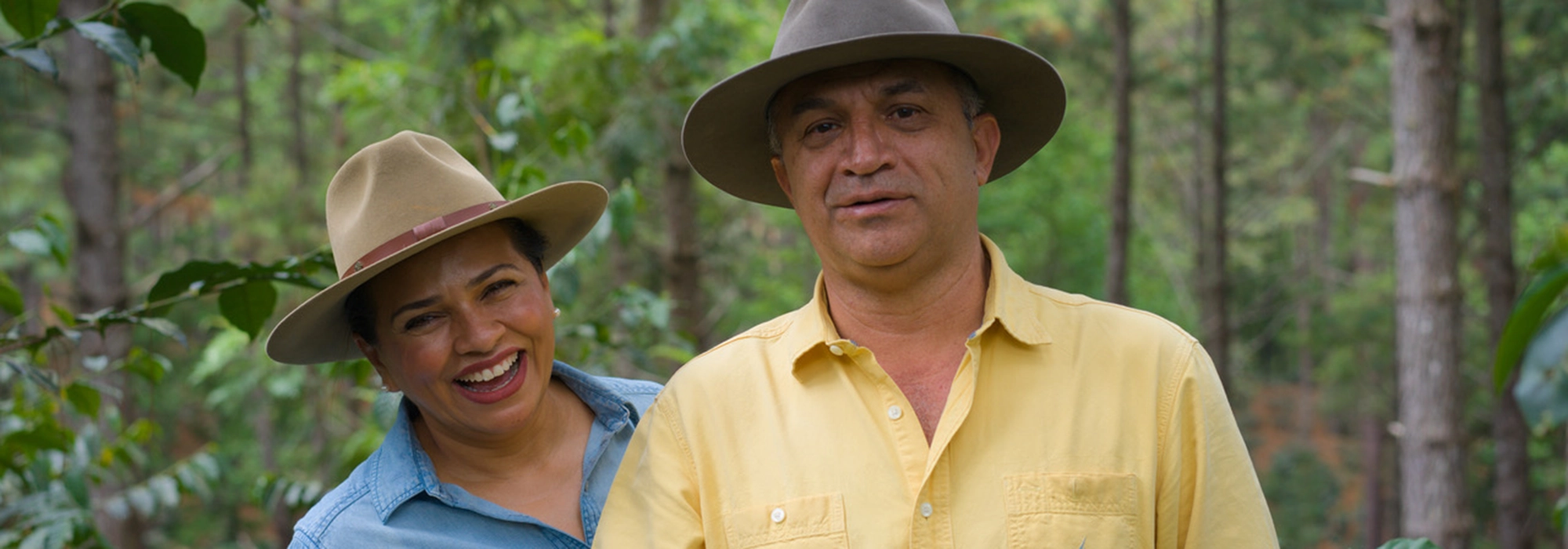
Marysabel Caballero is 3rd generation coffee farmer and together with her husband Moises Herrera they now own over 150 hectares of land planted with coffee near the town Marcala, Honduras. Marysabel’s father don Fabio Caballero is by many regarded as one of the pioneers among high quality coffee producers in Honduras. Together the family run a big wet mill where all of their coffees are processed and dried. Both Fabio, Moises and Marysabel have consistently been producing some of the best coffees Honduras has to offer. For over a decade they have been winning many top places in the Honduras Cup of Excellence. In 2016 and 2018 they managed to win 1st place with their Geisha coffees, but their first recognition was in the first Cup of Excellence competition in Honduras in 2004 when they won 2nd to 5th place with their Catuaí coffees.
Learn More About The Caballeros
Transparency
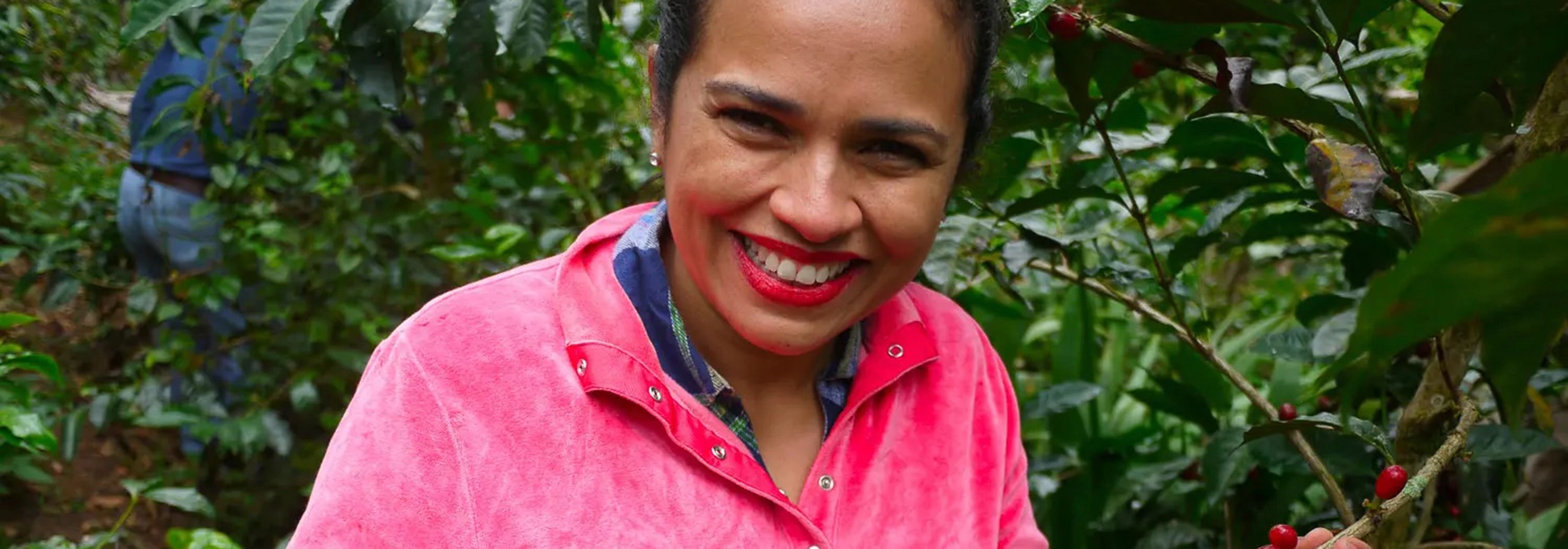
We buy coffee directly from Marysabel Caballero and Moises Herrera, the farmers. They mill and pack their own coffee. Boncafe, the exporter, provides logistical service and the coffee is imported by ourselves directly to Norway. We have been buying coffee from the Caballeros every year since 2009 and we will continue to do so in future years.
Learn More About Transparency

